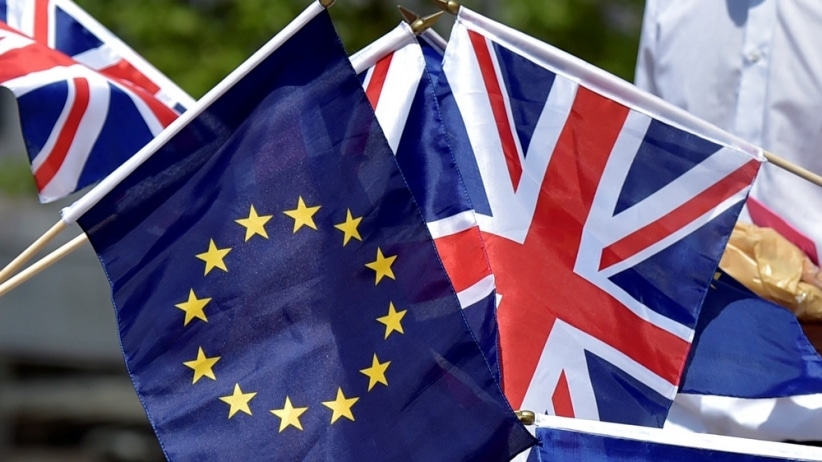
CAROLE CONCHA BELL
Cambridge, UK
On June 23, 2016, the British public awoke to the explosive results of the EU referendum. Britain had voted to leave the EU by a very narrow margin, 51.9% and 48.1% respectively.
While Wales, Scotland, Northern Ireland and southern cities such as Cambridge, Bristol and London voted to remain, a large chunk of mid to northern England overwhelmingly voted out, hence a picture of a very fractured Britain began to emerge.
Those in metropolitan areas, may be due to their proximity to the Westminster powerhouse both culturally and economically, were sure that remain would prevail.
But another reality, very detached from Westminster and the cappuccino-guzzling elites previously ignored by London, came to the fore; that of working class people in the post-industrial North whom felt neglected by Westminster.
Starved of funds with soaring unemployment levels and a serious lack of funding in social and public services, those who felt ignored by traditional political parties seemed to find their voice through the Leave campaign, with debate centering around whether anti-immigration sentiments or just sheer contempt for the Westminster political classes, did indeed propel this overwhelming rejection of Europe.
Unsurprisingly Brexit has shaken up the international community, who are the most vulnerable to changes in legislation. Many nervously await to hear about changes in policy or abolishment of previous EU immigration agreements.
In this uncertain climate, Chileans in the United Kingdom may feel that Brexit is indeed cause for concern.
Here, four Chileans living in England tell us what they feel about Brexit and how it may affect them:
Sara De Witt, 66 years old, retired social worker
Voted: Remain
“I came to the UK in December 1976 as a refugee. Nearly two years ago I adopted British nationality.
My family and I (three people in total) voted to Remain after several discussions and information gathering. The reasons were several and at different levels. We thought that the Leave campaign was racist and scapegoated ethnicity minorities, immigrants, refugees, was irrational and attempted to produce fear and division among people. I felt fear and unease with how the Leave campaign was conducted. For self-protection, I voted Remain.
I believe the EU provides safeguards through legislation. For example food safety production, safety standards and manufacturing laws. It has also provided legislation around work regulation and the protection of workers’ rights. I voted for Remain in spite of believing that people have little impact on decisions made by politicians at national and European level. I also believe that remaining in the union provides more opportunities for young people.
I think both the Leave and Remain campaigns were poor and didn’t inform people. The Leave campaign won but it was clear they did not have any substantial information to provide, they also had to retract their false promises such as extra money for the NHS.
After feeling initially unhappy about Leave winning, I’ve tried to understand the reasons people voted to Leave, including lower salaries being blamed on immigration and lack of regulation.
The vote has not impacted my family yet although a friend of mine left after the election as she was told she may not have her contract renewed. I’m aware some small business are losing money due to the fluctuating exchange rate impacting import and exports.”
Francisca Malaree, 42 years old, Cambridge UK, Development Director Cambridge University
Voted: Remain
 “I voted to remain as the UK is much stronger in the EU economically and in terms of its political and diplomatic global influence. For all its flaw, the European Union has maintained peace in Europe and promoted democracy, openness, and freedom of speech. The fact that a country led by dictators cannot be a member is very important to me.
“I voted to remain as the UK is much stronger in the EU economically and in terms of its political and diplomatic global influence. For all its flaw, the European Union has maintained peace in Europe and promoted democracy, openness, and freedom of speech. The fact that a country led by dictators cannot be a member is very important to me.
As someone working in the university environment, I’ve seen how important it is to recruit students and postdoctoral researchers particularly from the EU.
I felt angry because people were lied to (for example on the £350 million per week which supposedly would go to the NHS), I also was disappointed for my 19-year-old daughter (who did vote to remain) who won’t have the same opportunities to work internationally as a result.
It’s possible my husband’s job in the asset management industry may move to Paris or Frankfurt if London’s role as a financial center is diminished, also it will impact on the opportunities my children have. My husband’s grandfather was Polish and hence has a Polish surname as do our children, so we fear they may be discriminated against.
Overall I think the British are tolerant and welcoming, but there is an unfortunate tendency to go into ‘little Englander’ mode and think this country is still an imperial power. There is clearly a section of people who are living in the past rather than thinking of the long- term future. They haven’t accepted we aren’t an imperial power anymore and do not wield as much global influence.
I was especially sad to hear people talking about ‘independence day’ as a result of the vote as this country never lost the power to make its own laws and it is really offensive to anyone who has been under the yoke of British or another imperial power, to claim the EU was in anyway an imperial power in the same way.”
Andres Tapia, 41, Tree Surgeon, Hastings
Voted: Remain
 “I voted in because I believe in integration, the more the merrier! I love diversity.
“I voted in because I believe in integration, the more the merrier! I love diversity.
I felt as though a big truth was hidden, that the silent masses have had their say. Sometimes we become so immersed in our social bubble that we can’t see the point of view of others.
My English friends who voted Leave felt like they were finally having the right to say what they truly think without having to care about political correctness
My daughter and her Brazilian mother were emigrating to Portugal but all that got cancelled and they’ve decided to stay.
The Leave verdict has made me feel like I need learning to embrace English culture more than previously.
After I left London and moved to Hastings on the Sussex coast, English culture hit me in the face. I understand cultural differences having moved out a lot more from cosmopolitan London and have tried to learn from it, instead of criticizing.
The British view on foreigners has always been the same: them and us. Now they are more open about their true sentiments so it’s less passive-aggressive than before.
I am the brunt of ‘jokes’ every now and then, however, I try not to take them too seriously.”
Rosario Fernandez, 32 years old, Sociologist, Tier 4 Student Visa
 “I’m an international student so wasn’t eligible to vote.
“I’m an international student so wasn’t eligible to vote.
I felt it symbolized a turning point for British society, for migrants’ lives here, and a message to the world.
It’s a turning point as it reflects a more visible and public rejection towards a global neoliberal model, a rejection that does not understand the real source of its crisis (economic privilege of a small group), but rather blames migrants and working class population of taking ‘advantage’ of public resources.
In a way, it legitimizes public forms of rejection and racism towards migrants, who are portrayed as the source of British people’s precariousness, without taking into consideration the real structural problems with British neoliberal society and governments.
There is no direct impact in terms of visa requirements. However, we all feel that we are not welcomed here. Our immediate reaction was to leave the country.
Yes. I always thought Britain was a racist society, due to its history of colonialism, which is still lived in everyday life, especially by migrants, black and brown people, refugees, etc. But it was a surprise to see so much support to the Leave campaign. What most surprised me was not that they voted to leave, but that many people agreed with racist Leave slogans, especially those produced by UKIP. After the win of the Leave campaign, I do not feel comfortable travelling to cities where the campaign won.
One can feel people are more tense, you can feel it in the streets, in workplaces. Friends that have been working here for more time than me and in sectors outside academia feel their jobs may be in danger. One can also see more acts of violence and racism towards migrant communities, especially the Polish.
I don’t know how the Leave vote affects specifically the Chilean community, but I do think it affects certain specific areas were the Chilean community may be working in, service and technical sector in particular.
I think the Leave vote affects migrants as a group by making our stay more precarious. Access to health, education, and basic social services may be reduced, and this will directly affect all of us.”
 Carole Concha Bell was born in Santiago, Chile. Her family was forcibly exiled to Cambridge, England after Pinochet’s brutal military coup. A Politics & Economics graduate from Bristol and influenced by the artwork & life of her grandfather politician & artist Santiago Bell, she feels compelled to research and write about the Chilean exile experience.
Carole Concha Bell was born in Santiago, Chile. Her family was forcibly exiled to Cambridge, England after Pinochet’s brutal military coup. A Politics & Economics graduate from Bristol and influenced by the artwork & life of her grandfather politician & artist Santiago Bell, she feels compelled to research and write about the Chilean exile experience.




